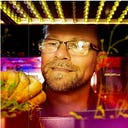Losing a Legendary Scientist
The Passing of Dr. Winslow Briggs Means We All Need to Step Up Our Game
Late Monday night, February 11, 2019, I locked up on a short blurb in social media that I thought I would never see. Dr. Winslow Briggs of the Carnegie Institute of Washington had died that afternoon. It was a tearful moment because I lost a friend and mentor. But in the big picture our discipline lost an incredible scientist, and one of plant biology’s greatest ambassadors. He was a man many of us believed was immortal, and in many ways the depth and breath of his contributions will ensure that distinction. Over the next few weeks and months we will read great reviews of his research and revisit his many achievements. We will all be treated to remembering the hundreds of careers he launched. He is the giant whose shoulders we stand upon.
But there’s another part of the story that I witnessed first hand, and a perspective that may be lost in words of accomplishment-heavy memorial. What separates Dr. Briggs from our other most esteemed dignitaries is that he exhibited an effervescent kind guidance to others, especially early-career scientists. I once was one, and benefited tremendously from his thoughtful direction. I never had the pleasure to work for him personally, but my Ph.D. mentor trained at Carnegie, at least somewhat under Dr. Briggs’ tutelage. My dissertation work examined blue light regulation of specific gene expression events, and Dr. Briggs’ work was a foundation for much of the research in the area. Those were my two tenuous connections.
I had heard about him for years and knew every single one of his laboratory’s research publications inside and out. Over the years my brain assembled an image of Dr. Briggs as an unapproachable expert, someone so deep in his craft that he’d be insulated from the little people like me, a graduate student with excess energy and barely half a clue.
But when I first was introduced to him at an American Society of Plant Biology Conference I met a warm, friendly man in a crazy green jacket that was excited to look at my poster and talk about my project. We spent 30 minutes discussing my work, and he was genuinely interested in my research and how it related to the broader field of plant biology.
But my interaction with Dr. Briggs was not unusual, it was how he treated everyone. At conferences he would wander the long rows of hundreds of posters, pausing to at least glimpse at almost each one. If the work was being presented by a graduate student, postdoc or even an undergraduate student he would ask for a guided tour. He’s inventively listen, and then ask leading questions. His enthusiasm was infectious, even for work that was nowhere near as exciting as his own. It was not about the work. It was about the people that did the work.
I once watched him speak to an undergraduate from the City University of New York for almost an hour. The funny part is, some she didn’t realize who she was talking to. Dr. Briggs didn’t tell her either. He was there to culture enthusiasm for the discipline, inspire her long term career, and foster a deeper understanding about plant biology — and it happened simply because he was interested and he cared.
That was the clear scientific consensus from the postdocs, graduate students and visiting faculty that were fortunate enough to work with him one-on-one.
In my early academic career he was always supportive. He invited me to give a seminar at Carnegie Institute, and the reception was warm and inviting. It was a rush to visit this famous scientist on his home turf- on site where the experiments were performed that led to our understanding of how plants interact with the light environment. He was excited by a far-out hypothesis, and asked critical questions rather than dismissing it out of hand, a tactic I see in my interactions with others today.
Shortly after I began my tenure-track position someone invited him to the University of Florida for a seminar. The large hotel conference auditorium was packed, and he spoke of his work to an engaged audience. Throughout his talk he mentioned my work, and how it related to his research. He mentioned that my new academic home was lucky to have me there. At the time I was the new kid on the block, and his endorsement in front of the broad university faculty meant a lot to me. Was it deliberate? I sure think so, purely in the spirit of kind assistance. His endorsement carried a lot of weight, and as I was walking in circles in the tenure-track environment, his words gave me a great sense of validation. Maybe I’d survive after all.
All of these short stories fit a common theme. Dr. Briggs was a scientist at the pinnacle of discovery, but would always extend courtesy and interest towards others. No project was too mundane, no student irrelevant. It made me realize that the vitality of our discipline is not driven solely by discoveries and journal articles — it is driven forward by the people that shape and inspire future scientists.
He leaves us with a tremendous gap to fill. Maybe the best lasting tribute to Dr. Winslow Briggs is a commitment for all of us in science to increase our efforts in serving others, especially in mentoring early career faculty and postdoctoral researchers. Make a point to visit posters, interact with students, and harness that time as a teaching moment. Encourage students to take on research and work with them one-on-one. Make kind guidance and approach-ability the foundation that the science grows from.
Most of all, do plant biology with a warm smile and endless grace, just like Dr. Briggs would do.
